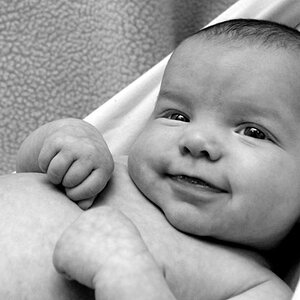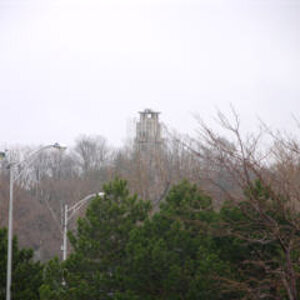I bought a uv filter for my camcorder primarily to protect the lens from getting scratched. I know that UV filters are supposed to take some of the haze out of your daylight shots but I haven't noticed a difference at all. It's nothing compared to the difference I see with a polarizing filter.
Navigation
Install the app
How to install the app on iOS
Follow along with the video below to see how to install our site as a web app on your home screen.

Note: This feature currently requires accessing the site using the built-in Safari browser.
More options
You are using an out of date browser. It may not display this or other websites correctly.
You should upgrade or use an alternative browser.
You should upgrade or use an alternative browser.
UV Filters. Do they do anything?
- Thread starter caerlas
- Start date
dlc
TPF Noob!
It could make a difference if it was hazy and also the blueish cast in open shade, at least with film.
Jeff Canes
No longer a newbie, moving up!
- Joined
- May 19, 2003
- Messages
- 6,194
- Reaction score
- 28
- Location
- Hollywood, FLA USA
- Website
- www.pbase.com
- Can others edit my Photos
- Photos OK to edit
caerlas said:I bought a uv filter for my camcorder primarily to protect the lens from getting scratched. I know that UV filters are supposed to take some of the haze out of your daylight shots but I haven't noticed a difference at all. It's nothing compared to the difference I see with a polarizing filter.
Did the same for a still camera lens that I have, it's a 77mm so I when with the UV over the polarize filter because of the cost, it was a mistake for me
ksmattfish
Now 100% DC - not as cool as I once was, but still
- Joined
- Aug 25, 2003
- Messages
- 7,019
- Reaction score
- 36
- Location
- Lawrence, KS
- Website
- www.henrypeach.com
- Can others edit my Photos
- Photos NOT OK to edit
Polarizers don't remove haze, they remove glare/reflections. This tends to saturate colors and darken blue skies perpendicular to the arc that the sun travels (if you are facing towards or directly away from the sun, polarizers don't do much, if the sun is directly to your left or right, you get max effect). Polarizers block at least 2 stops of light.
UV filters block UV which isn't even part of the visible spectrum (at least for humans). But scattering UV can cause a hazy look. In some situations this is unnoticable, but in others it can greatly affect your images. I have noticed more UV haze in the mountains and in bigger cities. I don't always shoot with the UV on, sometimes the haze is what I'm after.
Still, the main reason people use UV filters is to protect the lens. If you bash the end of the lens into something you are trashing a $10 filter, not your lens.
A sky filter has a hint of pink. This blocks UV, and slightly warms your image. This helps counter the bluish light in the shade, on overcast days, and from electronic flash. Many people use them as protection instead of a UV filter.
UV filters block UV which isn't even part of the visible spectrum (at least for humans). But scattering UV can cause a hazy look. In some situations this is unnoticable, but in others it can greatly affect your images. I have noticed more UV haze in the mountains and in bigger cities. I don't always shoot with the UV on, sometimes the haze is what I'm after.
Still, the main reason people use UV filters is to protect the lens. If you bash the end of the lens into something you are trashing a $10 filter, not your lens.
A sky filter has a hint of pink. This blocks UV, and slightly warms your image. This helps counter the bluish light in the shade, on overcast days, and from electronic flash. Many people use them as protection instead of a UV filter.
nikon90s
TPF Noob!
- Joined
- Jul 5, 2003
- Messages
- 581
- Reaction score
- 1
- Location
- Kalispell, MT.
- Website
- www.pbase.com
- Can others edit my Photos
- Photos OK to edit
I could not put it better....ksmattfish said:Still, the main reason people use UV filters is to protect the lens. If you bash the end of the lens into something you are trashing a $10 filter, not your lens.
Jeff Canes
No longer a newbie, moving up!
- Joined
- May 19, 2003
- Messages
- 6,194
- Reaction score
- 28
- Location
- Hollywood, FLA USA
- Website
- www.pbase.com
- Can others edit my Photos
- Photos OK to edit
nikon90s said:I could not put it better....ksmattfish said:Still, the main reason people use UV filters is to protect the lens. If you bash the end of the lens into something you are trashing a $10 filter, not your lens.
For my experience and the comments in the above postings UV filters dont work well at removing UV haze, so that filter will
photobug
TPF Noob!
Actually they do work reasonably well at removing haze caused by UV light. The problem is, most of the haze that you can see is caused by environmental factors, not UV light.
Ain't no filter gonna get rid of that haze. But, without it, we woudln't have glorious sunrises or sunsets. Ever notice how they seem richer in summer than in the winter? More stuff in the air, more haze, better pics early & late in the day. Crappy pics during the day. It's a trade off.
Jim
Ain't no filter gonna get rid of that haze. But, without it, we woudln't have glorious sunrises or sunsets. Ever notice how they seem richer in summer than in the winter? More stuff in the air, more haze, better pics early & late in the day. Crappy pics during the day. It's a trade off.

Jim
Jeff Canes
No longer a newbie, moving up!
- Joined
- May 19, 2003
- Messages
- 6,194
- Reaction score
- 28
- Location
- Hollywood, FLA USA
- Website
- www.pbase.com
- Can others edit my Photos
- Photos OK to edit
Environmental factors? Smog in the mountains of our beautiful National Parks? I like blue skies in my mountains shots. How about a blue graduated filter? Back to polarizer filters
will they do this to hazy skies?they tends to saturate colors and darken blue skies
ksmattfish
Now 100% DC - not as cool as I once was, but still
- Joined
- Aug 25, 2003
- Messages
- 7,019
- Reaction score
- 36
- Location
- Lawrence, KS
- Website
- www.henrypeach.com
- Can others edit my Photos
- Photos NOT OK to edit
A polarizer will not make haze or clouds turn blue, they only darken the actual blue sky. On a slightly overcast day, you may get some polarizing affect. On a very overcast day it will be gray with or without the pol.
There are two main types of polarizer filters. Linear for cameras using manual focus, and circular for cameras using auto-focus. The circular pol costs two to three times as much, but AF doesn't work through a linear pol.
Back to UV filters. I would say that 99.9% of the time I am making the decision whether to use a UV filter or not I am considering potential lens damage issues. For portrait sittings I usually don't use one. When I'm shooting bands at the Replay Lounge I put one on. It protects from anyone or anything that hits or touches the front of the lens. I also feel better about repeatedly wiping rain or spilled beer off the UV filter than the actual lens surface.
There are two main types of polarizer filters. Linear for cameras using manual focus, and circular for cameras using auto-focus. The circular pol costs two to three times as much, but AF doesn't work through a linear pol.
Back to UV filters. I would say that 99.9% of the time I am making the decision whether to use a UV filter or not I am considering potential lens damage issues. For portrait sittings I usually don't use one. When I'm shooting bands at the Replay Lounge I put one on. It protects from anyone or anything that hits or touches the front of the lens. I also feel better about repeatedly wiping rain or spilled beer off the UV filter than the actual lens surface.
Over here in Australia, in the national parks we get a haze caused by the eucalyptus oil in the trees. From a distance the mountains can look distinctly blue on a really warm day and I believe that the Blue Mountains in New South Wales actually got their name because of this effect. Just wondering what effect, if any, a polariser or a UV filter might have on this?
drlynn
TPF Noob!
I can't imagine either a polarizer or UV filter affecting this type of haze much.
hotkev69
TPF Noob!
You can also look into Haze filters by Tiffen. Her's the website.
http://www.tiffen.com/filters.htm
Haze 1 - Reduces excessive blue haze caused by UV light by absorbing 71% of UV. Great all-around UV control.
Haze 2A - Absorbs all UV light; reduces haze; maintains color and image clarity. Best for high altitude and marine scenes.
I use a Haze 1 and I see difference in my pictures, mostly in the mountains or near the water.
http://www.tiffen.com/filters.htm
Haze 1 - Reduces excessive blue haze caused by UV light by absorbing 71% of UV. Great all-around UV control.
Haze 2A - Absorbs all UV light; reduces haze; maintains color and image clarity. Best for high altitude and marine scenes.
I use a Haze 1 and I see difference in my pictures, mostly in the mountains or near the water.
marlonroque
TPF Noob!
- Joined
- Sep 28, 2003
- Messages
- 9
- Reaction score
- 0
:salute: a very very interesting topic. I commend everybody who posted their individual opinion on the this and that of uv and pol filters. A newcomer like will really learn a lot from you guys. Thanks a lot.
marlonroque
TPF Noob!
- Joined
- Sep 28, 2003
- Messages
- 9
- Reaction score
- 0
Correction: a newcomer like me............instead
Most reactions
-
 449
449 -
 286
286 -
 271
271 -
 267
267 -
 215
215 -
 188
188 -
 180
180 -
 179
179 -
 174
174 -
 172
172 -
 162
162 -
 125
125 -
 117
117 -
I
106
-
 94
94
Similar threads
- Replies
- 10
- Views
- 614
- Replies
- 4
- Views
- 378
- Replies
- 13
- Views
- 379

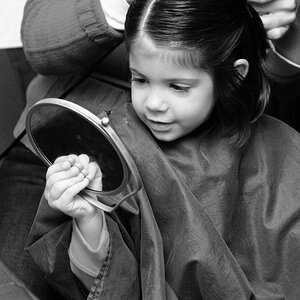

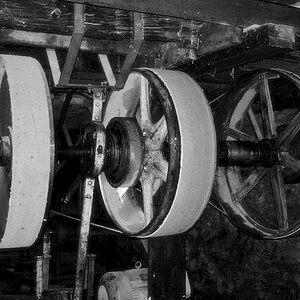
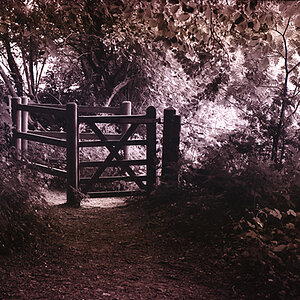
![[No title]](/data/xfmg/thumbnail/42/42465-64dd69400e2bfaf59e558c3d8c934271.jpg?1619740192)
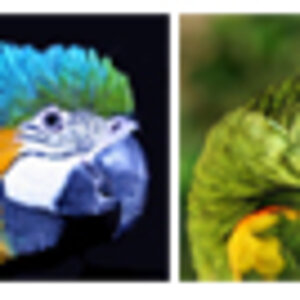
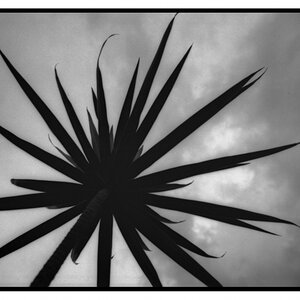
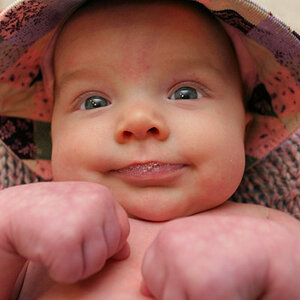
![[No title]](/data/xfmg/thumbnail/42/42463-03457f0869c7510e6fb947b21de31aba.jpg?1619740192)

